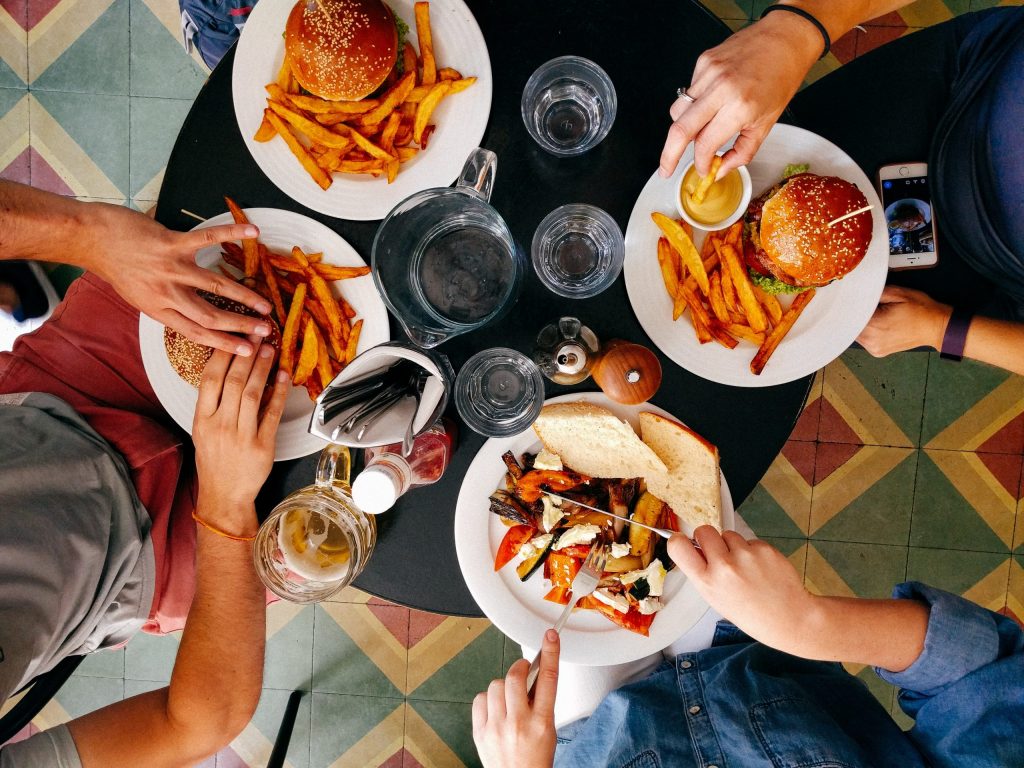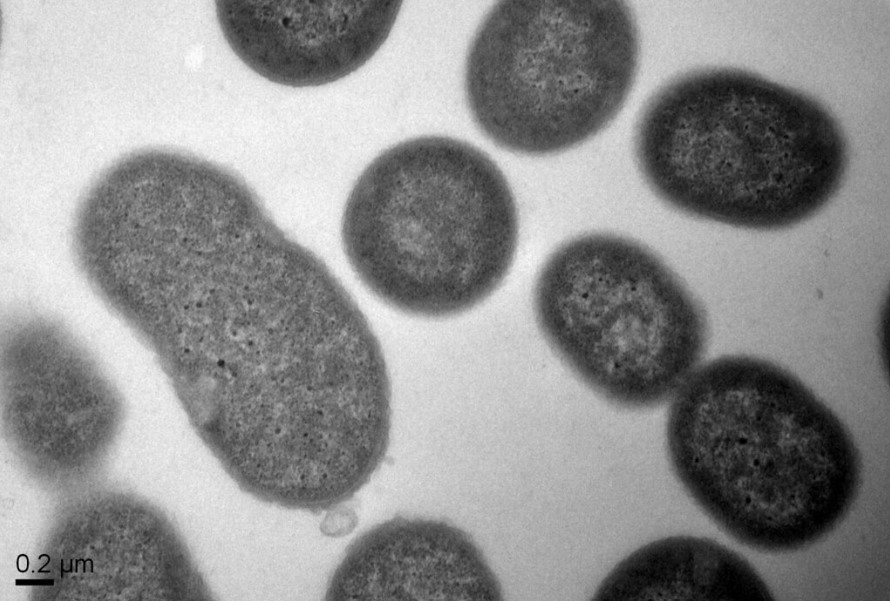How did Elon Musk grow his hair back? 6 Options
If you are currently reading this article, you’ve probably noticed that Elon’s hair has changed quite a lot and looks

Food cravings can come from a variety of places and mean many different things. You can crave certain foods due to medical reasons, like nutrient deficiencies. Sleep and lifestyle may also affect your food cravings — even exposure on social media can affect cravings. Broken down below are common types of food cravings, their causes, and what you can do to keep cravings from controlling your diet.
Food cravings happen for a variety of reasons — from the nebulous something-sweet-after-a-nice-meal, to the specific chicken tacos from the food truck across the street from your first apartment. Because there’s such a large range in cravings, we’re going to narrow it down to five categories — salt, sugar, carbs, fat, and unusual foods — and talk about the potential psychological and biological reasons you’re experiencing cravings.
The insatiable sweet tooth is a struggle that many people can identify with. This is because sugar — especially artificial sugar like fructose — is chemically addictive. When you eat processed sugar, it releases dopamine, a feel-good hormone, which can cause the brain and body to associate sugar consumption with comfort or reward. This makes forming an addictive sugar habit relatively easy, and can make sugar cravings particularly tough to deal with.
Salt cravings can come from several places, some of which are surprising. Dehydration and electrolyte imbalance due to exercise or illness can cause salt cravings, as you lose sodium and electrolytes through your sweat, urine, and other bodily waste. Stress or premenstrual syndrome (PMS), can cause salt cravings as well.
Cravings for carbohydrates found in breads, donuts, pastries, and crackers are usually the result of high insulin. High levels of insulin can lead to carb cravings, as it burns carbohydrates instead of fats as energy. This can deprive other cells in your body of energy, which can cause you to feel hungry, or signal the supposed-need for more carbs.
The motivation behind cravings for fatty foods on a biological level are still under scrutiny by medical researchers. However, many behavioral scientists have found that following a strict low-fat diet can increase your fatty cravings. A reason extreme or exclusionary diets, most commonly seen in fad diets, might increase our cravings for the foods we’re trying to avoid is due to a built-up idealization of that food, memories associated with it, or unhappiness associated with being on a diet. This phenomenon is still unclear on a chemical level, and currently being discussed by researchers.
If you’re craving something you’ve never had before, or an unusual combination of foods — pickles and peanut butter, for example — there could be a few reasons. A change in your hormones can change your palate, so if you’re pregnant, experiencing menopause, or undergoing any hormone-based treatments, you may find yourself craving something unusual to you. Unusual cravings coupled with other symptoms, like thinning hair or fatigue, might point to malnutrition or vitamin deficiency. These types of cravings can extend to foods with no nutritional value like ice — or non-edible foods. If you suddenly find yourself craving a raw steak, you may be low in iron or B12. Talk to your doctor to see if taking a multivitamin is a good idea for you to supplement any nutrient deficiencies that could be causing persistent unusual cravings.
If you’re not experiencing cravings that are a result of nutrient deficiency or hormone changes, then there are quite a few strategies you can use to reduce or change your food cravings.
Having a healthy meal plan can help manage your unhealthy cravings. Meal plans help bypass the instant gratification we can crave from junk food by making healthy, nutrient-rich food as accessible as junk food. There are plenty of services that you can use to help you meal plan, from blogs to paid subscription boxes, that focus on cutting costs and effort, as well as cutting down on cravings.
While you can become addicted to any kind of food, for a number of psychological reasons, some foods have a chemically higher chance of getting you hooked. Drinks especially high in artificial sugar or caffeine, like soda, energy drinks, and flavored coffees, can be incredibly addictive; high-fat snack foods, like french fries or potato chips can be addictive as well. Finding healthier snack alternatives, like air-popped popcorn or 100% fruit juice can help you cut down on unhealthy snacking and curb future cravings.
Staying hydrated can reduce your cravings, as the part of your brain that interprets hunger signals, the hypothalamus, also interprets thirst signals. Eight glasses of water a day is the recommended amount. Keeping a water bottle around or infusing your water with fruit slices can help you stay hydrated and stop cravings throughout the day.
This might seem counterintuitive when trying to cut down on cravings, but going too long without eating can actually worsen your cravings for unhealthy foods.This is because going too long without eating puts your body in survival mode, and the instant gratification or accessibility of junk food becomes a strong draw. If you have a small snack in between your meals — like a handful of nuts or a piece of fruit — you’ll feel more satisfied throughout the day. Eating small snacks between meals can also help you avoid choosing fast food over cooking at home, as you won’t feel such a strong need for something immediate.
If you find yourself falling victim to late-night cravings, you may not be getting enough sleep. Sleep is essential for your metabolism to function properly, and for your frontal lobe to engage in the complex decision judgment that allows us to prioritize eating healthy. Sleep-deprivation can worsen caffeine and sugar addiction, so if you want to decrease your cravings, start with getting some more shut-eye.
When considering indulging your cravings, be sure to keep moderation in mind. Indulging once in a while on a chocolate cupcake or a bowl of chips isn’t evil, and, in fact, can be a great way to reward yourself. However, the danger of letting your cravings dictate your diet can manifest in two extreme ways: binge eating and food addiction.
Binge eating is a type of eating disorder that can be, but isn’t necessarily, followed by purging (the coupling of these two habits resulting in bulimia). Like binge drinking, binge eating occurs when you frequently consume large quantities of food past your “full” level. Whether as a way to distract from boredom, used as a coping mechanism, or a result of food insecurity, binge eating can lead to further serious eating disorders, and associate feelings of shame or depression with fueling your body.
While this may sound harmless, food addiction can be a very serious illness, and a precursor to obesity, eating disorders, and other serious mental and physical health conditions. Like many addictions, food addiction is often used as a coping mechanism. Binge eating can be a part of food addiction, as choosing to overindulge can make those suffering from it feel empowered in their circumstance, or comforted from a traumatic experience. Food addiction can stem from socio-economic status, PTSD, and stress factors.
It is important when considering food and food cravings to listen to your body’s needs, not just its wants. If you have consistent cravings for one particular food, this could be a sign of malnutrition or vitamin deficiency. Besides consistent cravings, symptoms of malnutrition may include:
If you’re experiencing these symptoms continually, talk to your doctor about potential nutrient deficiency or signs of thyroid problems, as the symptoms are very similar.
Food can be a sensitive subject for many, whether due to weight insecurity, eating disorders, or socio-economic factors that make food hard to access. But you do not have to villainize your cravings, no matter what your situation. Learning why you’re experiencing food cravings, as well as strategies to manage unwanted cravings, can lead you to a happier, healthier relationship with food.
If you are currently reading this article, you’ve probably noticed that Elon’s hair has changed quite a lot and looks

How Does Swimming Affect Your Body? Individuals swim for a variety of reasons including recreation, competition, and health. Regardless of

Lifestyle Tips For Better Overall Health The way you go about your daily life has a massive and direct impact

How Do Infections Work and What Are Their Effects on the Body? From Hippocrates’s writings about the spread of disease

How To Make a Good Impression in a Job Interview When it comes to getting a job, interviewing may seem